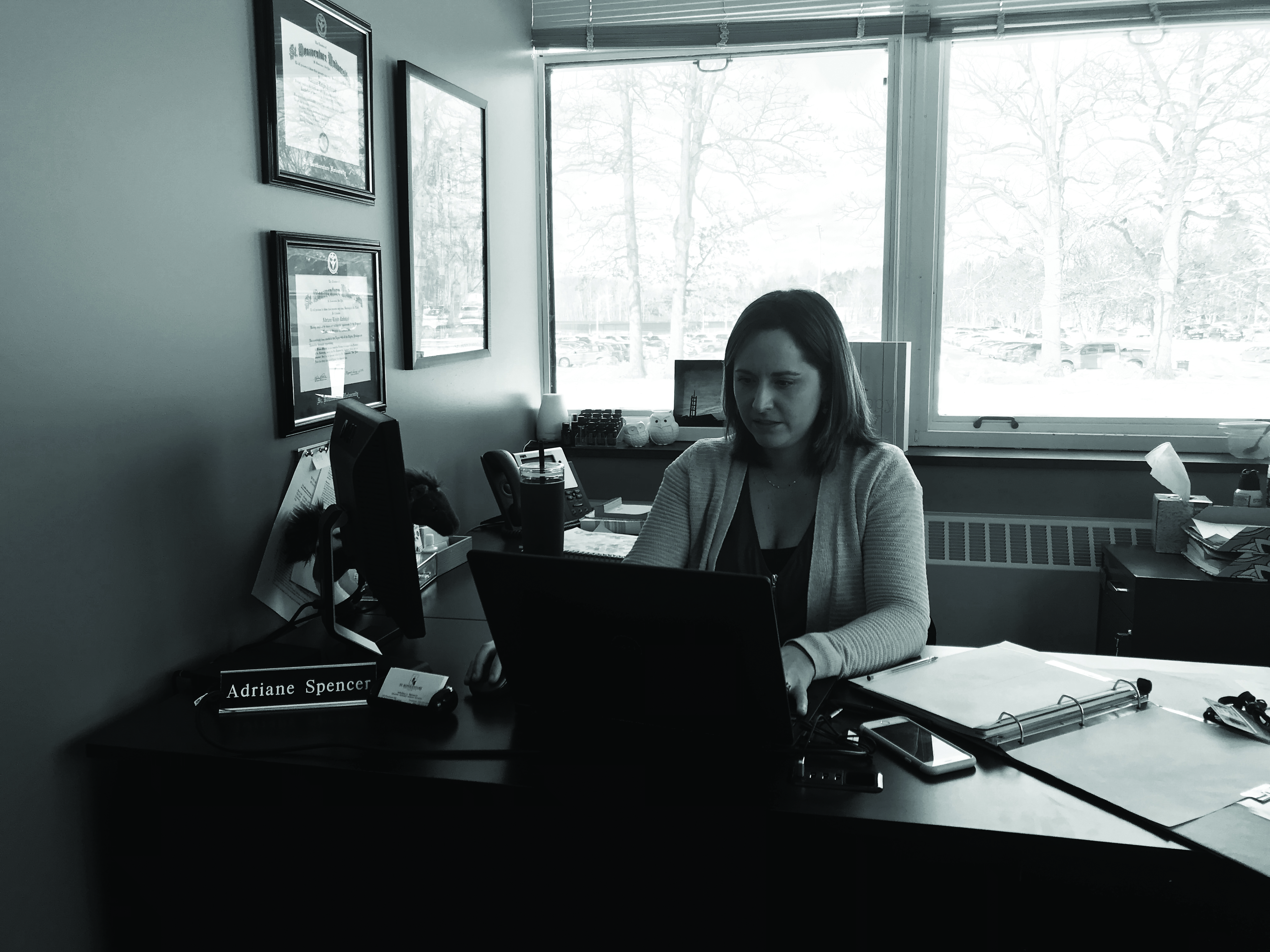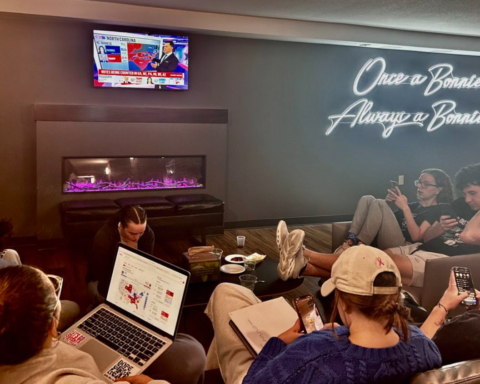Adriane Spencer is a crucial member in leveling the academic playing fields for students, providing accommodations and a welcoming ear for anyone who needs it.
She has been a member of the St. Bonaventure community since her time as an undergraduate student. She received her undergraduate degree in elementary education, along with a master’s degree in advanced inclusive processes. Since 2007, she has been working with disability services as disability support services director.
During her position at the summer school program with Cattaraugus Allegany BOCES, she fell in love with special education, the children and how hard they work.
“Originally I wasn’t interested in special education, but it definitely morphed into that, and that’s been pretty much all of my experience so far,” Spencer said.
Working in the education field has always been a passion of hers, regardless of the age group.
Before she returned to St. Bonaventure, Spencer taught middle and high school special education. She never thought she would’ve ended up back here, as she pictured herself within a pre-k through 12 public school education setting. Now, she can’t imagine herself anywhere else.
“I was looking for something different, and I saw the job posting, and it aligned with my experience, so I figured ‘why not? I’ll give it a shot,’” she said. “And the rest is history.”
When Spencer first started working for the university, although her responsibilities have mostly remained the same, her title transformed from a coordinator position to a director title.
Her role as disability support services director includes helping coordinate services and accommodations for students who have documented disabilities. It ranges from classroom accommodations, note taking, testing accommodations, extra time, alternate locations, housing accommodations, time management, study skills and talking with students.
“There’s so many different types of students, and they all have different types of needs that it’s difficult to say specifically what I do,” Spencer said. “I have students who have learning disabilities, ADHD, physical disabilities, mental health concerns and visual disabilities. In the past, I’ve had deaf/hard of hearing disabilities, so it changes all the time and with each incoming class.”
Her work in a university setting, in comparison to her previous experience with elementary education, is less structured.
“There’s more flexibility,” she said. “You’re not necessarily teaching scripted lessons, but a lot of what I learned and strategies we used in classrooms are transferable to here.”
She tells her students that their academic career from pre-k through 12 is structured, where their teachers are in charge of the services and accommodations, but in life, they’ll 100 percent be in charge of advocating for their own accommodations.
“This time is the transition time,” Spencer said. “I help with that transition, so they know how to advocate for themselves and learn different strategies and skills to go into the real world without a ton of support like they might’ve had in the past.”
Spencer offers weekly meetings for students. It’s not a requirement, but an option. Some students she sees for final exams only, but others she will see multiple times a week to touch base or talk out a problem based on individual needs.
Interacting with students is Spencer’s favorite part of her job. She believes this university has a strong pull, where students can form a bond with professors, mentors and friends and help to add to their experience.
“When I’m able to form relationships with students and they’re comfortable enough to come to me with problems or concerns or wins,” she said. “I have a lot of students who will come in and be like you’ll never guess what happened. This super awesome thing happened and it’s nice that they’re excited enough to share that with me. It’s pretty special to have that connection.”

New York Theater Ballet comes to St. Bonaventure
Photo of NYTB Photo: @nytheatreballet on Instagram BY: JESSICA WIKANDER, STAFF WRITER





